In 2009, Anyway Records’ Bela Koe-Krompecher began documenting stories from his youth, upbringing, and adventures via his blog. The posts consisted of unflinching accounts of his life before and after sobriety, his relationships with lover and friend musician Jenny Mae Leffel and friendship with Gaunt’s Jerry Wick, and resurrected the ghosts of the bygone ’90s era of Columbus, Ohio’s High Street. These posts, confessions of love, recklessness, music, and addiction, although merely a keyhole view into Koe-Krompecher’s exploits, are less nostalgia than they are a fascinating account from a self-taught author digging really, brutally deep.
Recently, that material was condensed into a 250-page book, Love, Death & Photosynthesis, which hit the streets (and quickly sold-out on Amazon) via Don Giovanni Records on Friday, August 13.
Ghettoblaster recently caught up with Koe-Krompecher to discuss the book, the value of not being constrained by “the rules,” addiction and sobriety, and more.
Is this a book about music? About addiction? About mental illness? About youth? All the above?
I suppose the book is about friendship, about feeling connected in a world where many of us felt unconnected because of our pasts, mental illness, and addictions. For me, my drinking was a way to feel connected until it wasn’t anymore. But, for most of us in the book, music was the one common denominator that brought us together. Eventually, things change and some of the consequences were more severe for some than others. I don’t want people to think it is a book about nostalgia which can imply that “there was a better time,” I don’t feel that way about my twenties—near the beginning of the book, I discuss my suicide attempt at age 23. I certainly don’t want to go back to that state of mine.
You had a special set of experiences in the ’90s in Ohio with regards to what was happening in the musical ecosystem at the time. But these are largely shared experiences with the people who were there beside you too. What have those people had to say about the book?
To be honest, very little—almost all the feedback has been very positive. I think most people understand that this is a book written from memory and my own perspective, and I have a disclaimer at the end where I sort of apologize if I got something wrong. I tried to not impugn anybody from my past, certainly, there are people in my past who hurt me and some that I have hurt, but that is not the focus.
You’ve mentioned on your social media that you might not be 100 percent personally comfortable with the idea of delivering a book. That’s a little shocking to me, mostly because of how beautifully the story comes together despite the format not being entirely linear. Where does this hesitation come from? What can I do to help assure you this book is incredible?
Thank you for your kind words, I appreciate it. There is something about some of us who create, and maybe you can relate, where there is a hesitation, and if you came of age during a certain period there was almost a concerted effort to resist being a “success.” I don’t think I am guilty of that; I want the book to be successful, I want people to read it and connect with it. But the effort around the book has been something I need to look at for myself.
Where some of the doubt comes from within me, which most likely is that feeling of not feeling especially comfortable of pushing the book. I’m not sure if I am making sense, but maybe it comes to expectations. I really try to live my life without expectations, because this helps me accept things as they are, and if I can pause long enough when I am disappointed, I can usually let it wash over me, but sometimes I can still be bothered by it.
I used to get upset when I put a record out by a band and it wouldn’t get very many reviews, and I would see shitty records get reviews, it would really bother me because when a person runs a small label or even publishing house, they are investing their own money in something that they feel is vital and when it gets ignored it is easy to feel self-righteous. That’s how I would feel about some of the bands and records I put out; I don’t feel this way about my book, but it is very easy to get caught up in what I want for the life of the book. It even feels kinda dumb and gross to talk about it, but it’s there and I think it’s a real thing people go through whether they are writers, musicians, artists, or even teachers and whatnot. So, my apprehension comes from wanting and then clinging to whatever the success of the book is in my mind. And I don’t want the publisher to lose money!
What was it initially that made you feel compelled to put these stories in the public purview?
I don’t know, I think I wanted to just let Jenny and Jerry’s story be heard. Much like my approach to running a record label, my aesthetic is very DIY, and I don’t think too much about an overall goal or conscious purpose in what I do. I kind of just do and if people respond, great, and if they don’t, then that’s ok as well. I’m still going to write, and probably still put out records. I also think I have some talent for writing. I’m very unpolished as a writer — I only took one writing course in college — so I’m pretty self-taught except for being well-read and somewhat of a storyteller in person. But it works for me, sometimes it’s beneficial to not know the rules then you don’t feel constrained by them.
I think there are probably music fans in their 20s who are experiencing, to some degree, the same love, loss, churn, and chaos you experienced during your younger years. Do you have words of wisdom for them?
Not sure if I do. There is less stigma about mental illness and substance use than there used to be. But it’s also more dangerous with the use of opiates. I would really advise into not using those and to talk and get help if you need it. Don’t hide within your fears, get yourself checked out for STDs, laugh a lot, and try your best to be honest. Love your friends with all your might.
Do you feel as passionately about music now as you did then? If not, what sorts of passions or loves have replaced that?
My relationship to music has evolved, and at the risk of being overly “professor-y” I can explain a little bit about emotional memory and its link to music. When we are younger so much of our experiences make emotional imprints in our mind, much of it is subconscious—like a stamp and for some of us this may be formed through music, but also early love, sex, and even food make these imprints. It’s why we tend to reach back to music we listened to when we were younger. As I write this, I’m listening to a Dwight Yoakum record that came out in 1989. It’s easy to say this is nostalgia, but it’s not necessarily that—we want to feel connected to our emotions, music does this extremely well and we subconsciously tie memory to it.
So, in this sense, my relationship has ended. But I buy a lot of music—a lot of new music, nearly every week. I like discovering music through my kids, at the moment I’ve been buying a lot of roots reggae and some female singers. I love Lucy Dacus and Laura Stevenson, for instance. I don’t know if I have any new passions, I still basically only buy records, books, and pizza.
As someone who works professionally in community outreach and social service, what advice do you have for your peers with regards to understanding the complexities that come with artists dealing with addiction and mental illness?
A lot of the stigma around addiction and mental illness has receded over the years but so much of what the behavior for both is somewhat glorified in the world of the arts and I think there is some danger in that, especially with the opioid epidemic. So I think people should be careful, seek help, and talk about what they are feeling.
It’s also important that we all continue to advocate for those less fortunate,. Some examples that I feel strongly about are universal health care, access to affordable housing, and the de-criminalization, or even legalization in some cases, of most drugs.
It is interesting in 2021 to see that artists who seem to struggle with addiction problems and their behaviors are still a bit romanticized or at least sensationalized. Is that just part of the long-running “sex, drugs and rock and roll” trope?
When I was drinking, I had a lot of fun. Many substances are fun and can be used responsibly, but for some of us, it is too easy to get lost in them. There is danger in the solace they provide. I think I never really bought into the decadence and glorification of “sex, drugs, and rock & roll” although I do have my stories about them—I hope I tell these in a truthful and humorous method. But for many, the lure of rock and roll is the creation of another identity and the way that the culture provides this, whether it is through goth culture, emo culture or metal culture. But I’m not sure that was so much for me, if it was, I was never conscious, I’ve always been a tee-shirt and jeans person.
There seems to be a trend towards sobriety in some artistic circles. It occurs to me that not everyone wants their sobriety under the microscope despite some really communicating freely about it via social media and interviews. How do you think fans should treat the subject in discourse with people they admire or idolize? Should it always be a topic that’s on the table for discussion, however casual the interaction?
As someone who utilized 12-Step programs to help get sober, I understand the anonymity aspect of it. Historically it was to protect those programs as they were built on attraction. But also, if someone relapsed, and most people do, there was a danger in saying they don’t work. In fact, they do work for many periods of time.
I have issues with believing sobriety is to be measured by someone’s entire life. It’s not very useful or realistic for many people. My own recovery is my own, on my own terms. But we also live in a different world, the fact is that many people get support from social media, some people feel very connected by this, and it is important for them to share their stories or days in this manner. Idolization is dangerous, we are kind of just people having a shared experience of living, eating, fucking whatever it is, and even those we look up to have the same issues we have. We all laugh, we all worry, and we all need a nap!
My heroes have always been flawed, it is easy to tear down people in the rapid world of communication we have, learning to forgive and accept is something I think can be lost daily. Redemption can be performed in small increments, even if it is letting someone merge in front of us during rush hour or spending a moment to talk to a homeless person.
You’ve long helmed a record label and there seem to be major shifts in how running a label in 2021 is done versus the ’90s. What are some of the biggest lessons you’ve learned decade to decade?
It is nearly impossible to make money or even break even running a label in 2021. Streaming had nullified it and the way that the media works make it harder. Most record sales happen the first few weeks of a release—prior to the aughts one could plan on working a record for six months, now it’s more like six weeks at best.
Also, the “resurgence” of vinyl has severely disrupted the way labels can work records, it is a six-month waiting period to press a record, and vinyl is the frame on what the indie community is built on and indie stores. With major labels reissuing bullshit like Teenage Mutant Ninja, Sugar Ray, and Collective Soul records it pushes out new bands and clogs record bins. Small indie stores are therefore in a bind on what to carry, my bands can’t compete with all the reissues coming out, even the good ones — I’ve bought nearly every Neil Young box set the past year — so it’s difficult. And don’t get me started on Record Store Day, fuck most of those releases—who really needs a 12” reissue, any 12” reissue?
At this point, many labels both need to find ways to have their bands find their way into stores but also into the media, it is very hard to get unheard and smaller bands covered by larger media outlets. In the eighties and nineties, we had zines, college radio, and even Spin would cover small bands. Bands were regularly covered in Spin, Raygun and the College Music Journal, only a handful have even been covered in larger media outlets over the past ten years. I’m not bitter about it, it’s the way it is, clicks sell ads so we are left with coverage of more mainstream artists. For a while, it was easiest to get music added to Spotify playlists but now it seems there is more pay to play with it, so smaller bands are even more ghettoized.
I don’t like to sound pessimistic, it’s the reality we live in, but I will continue to put my ears and money into things I want to play on my turntable and that I think is important enough to have a physical life. I want to add my label is more of a collective than a sole-proprietorship, most bands I work with have to invest in their projects and we recently had our first crowd-funded project, Jenny Mae’s What’s Wrong with Me compilation LP, and it was very successful. So, I plan on doing more of these.
What do you think Jerry and Jenny Mae would say about the book?
They both loved attention, so hopefully, they would appreciate it and laugh. Jenny loved reading about herself in my blog and I miss her ability to recall events. Jerry would probably both argue about it and cherish it, I like to think he would have grown wiser and realized that my writing is an act of love and respect and I loved them both deeply.
Purchase Koe-Krompecher’s book here.
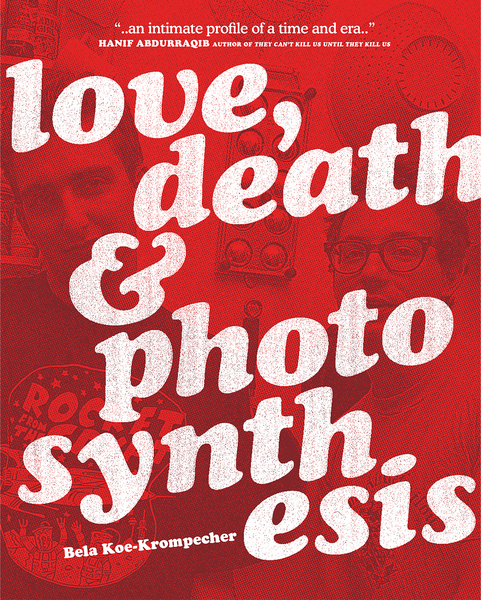


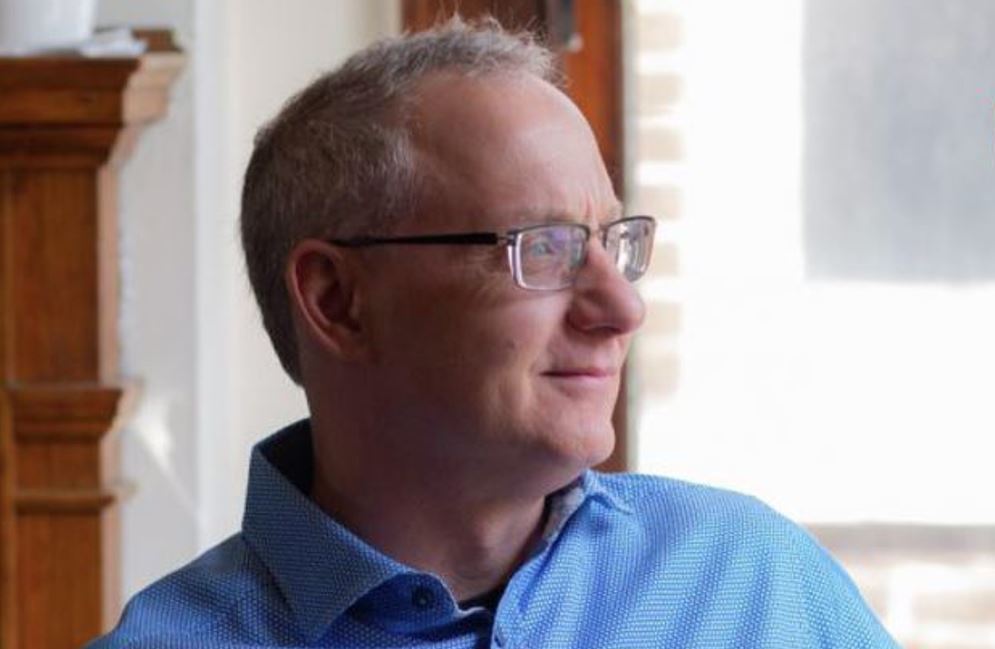
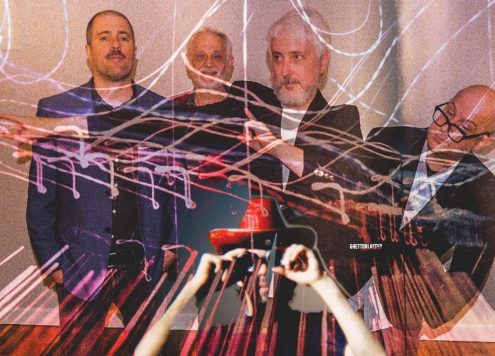
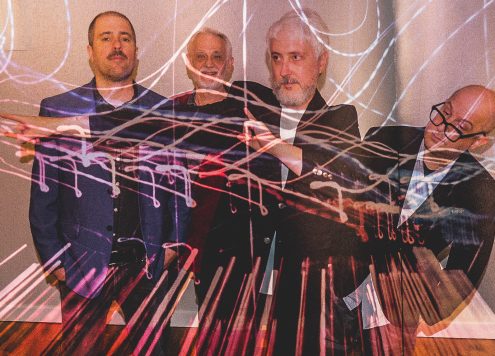
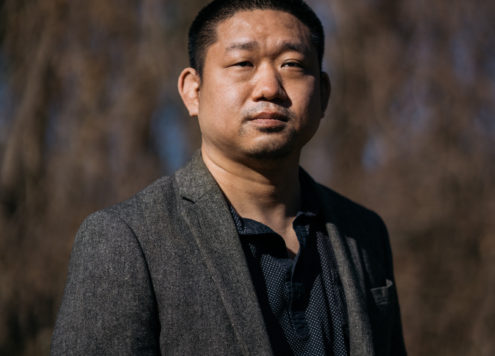


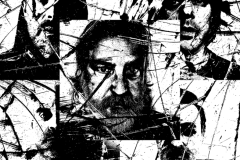
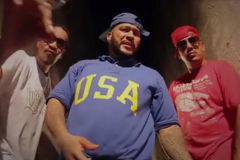
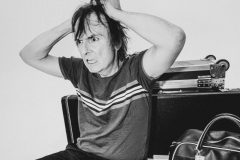

Social Media